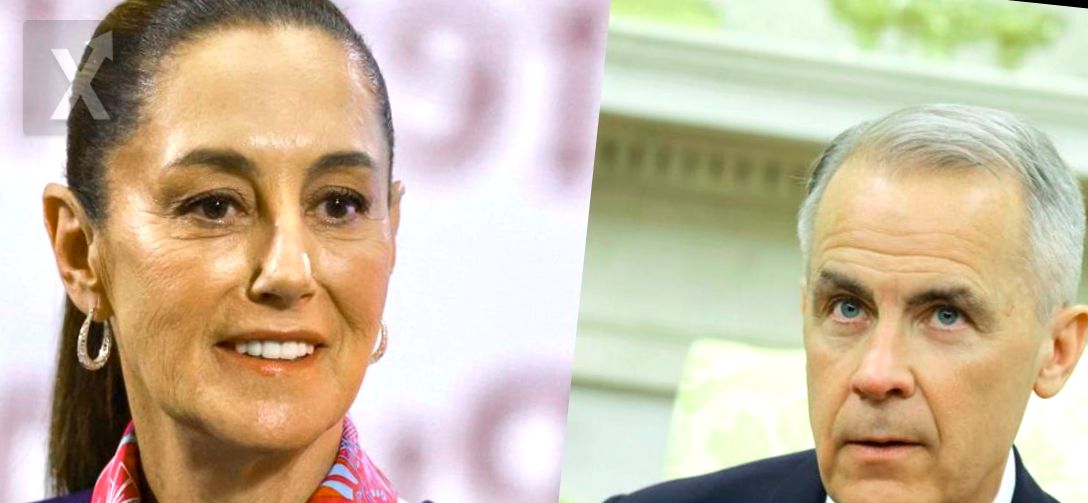Canada Strengthens Trade Ties with Mexico Amid Growing Protectionism in North America

In a global context marked by rising protectionist trends—especially from the United States—Canada is betting on deepening its trade relationship with Mexico. With a strategy focused on diversifying its exports and reducing its dependence on the U.S. market, Ottawa is looking to solidify Mexico as a priority partner in key sectors such as agri-food and automotive.
Both economies face structural vulnerability due to their heavy reliance on the United States for exports: 78% of Canadian exports and 83% of Mexican exports are sold to their northern neighbor. This highlights the need to open new pathways and strengthen bilateral cooperation to navigate the challenges posed by potential restrictive measures, such as those anticipated in the event of a Donald Trump return to the White House.
Export Development Canada (EDC), the Canadian export credit agency, has made increasing the presence of Canadian agri-food products in Mexico a top priority. Currently, just 2.9% of these shipments are destined for Mexico, despite the expected growth in demand as the Mexican population surpasses 149 million by 2050. The country’s lag on the Global Food Security Index—Mexico ranks 43rd out of 113, compared to Canada in 7th place—creates room for potential partnerships to address gaps in sustainability and supply, especially as water, climate, and agricultural land access challenges intensify in Mexico.
One of the main barriers to overcome is infrastructure limitations. More efficiently integrating both nations’ transportation systems—rail and ports alike—is seen as a necessary step to streamline the flow of goods. To this end, the Canadian government has invested in the Trade Corridor Fund and promoted projects such as the USMCA Corridor, which will link Mazatlán to Winnipeg through Canadian Pacific Kansas City’s continental rail network, along with the expansion of the CentrePort Canada logistics hub.
After periods of tension, when Canadian political sectors suggested reviewing Mexico’s participation in the United States-Mexico-Canada Agreement (USMCA) over concerns of indirect entry of Asian products, the focus has now shifted to cooperation in the face of new tariff threats from Washington. A key example is the boost to joint innovation: Mexican startups have been actively involved in tech fairs in Canada, and the agri-food sector is adopting Canadian technologies, such as precision agriculture and advanced irrigation systems.
According to recent data, in the first quarter of 2025, Mexican exports to Canada rose by 20%—outpacing their growth to the United States. While Mexican imports from Canada have yet to reach optimal levels, there is considerable room to bolster bilateral trade, especially as an alternative to the Asian market. Mexico currently imports goods from China that Canada also produces—including vehicles, machinery, fertilizers, and processed foods—which could yield new opportunities for both countries in the medium term.
Investment, however, still faces challenges. In the mining sector, Canadian projects worth $3.5 billion are experiencing regulatory delays, reflecting the need to build greater trust and legal certainty for foreign capital. This is especially important in light of President-elect Claudia Sheinbaum’s so-called “Mexico Plan,” which aims to position the country as the world’s tenth largest economy by 2030 through job creation, innovation, and reduced dependence on Asia. Canada, the third-largest foreign investor in Mexico, is seen as a strategic partner in reaching these goals through financing, technology transfer, and human capital development.
Sheinbaum's invitation as a guest to the G7 summit in Canada—a first for a Mexican leader—highlights the Canadian government’s interest in strengthening ties with Mexico and raising its profile within the group of major developed economies.
In conclusion, the current international climate and Ottawa’s new strategies provide unique opportunities to enhance trade and investment relations between Mexico and Canada. If both countries can make progress in logistics integration, technology transfer, and mutual trust, they could forge a resilient and competitive alliance in the face of global challenges and ongoing uncertainty surrounding U.S. trade policy.





